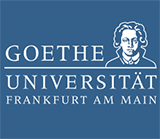Detailed introduction of Goethe University Frankfurt:
Introduction
Goethe University Frankfurt, whose full name is Johann Wolfgang Goethe-Universität Frankfurt am Main, is a well-known comprehensive research public university in Germany. It is located in Frankfurt am Main, the financial center of Germany and a hub of land and air transportation.
Overview
Student size: about 46,000 students, including more than 7,000 international students from more than 130 countries.
Faculty: about 600 professors.
History
The school was founded in 1914 as a citizen university, funded and operated by the rich and activists of Frankfurt. In 1932, the school was named after Goethe, the most admired literary giant in Frankfurt.
Establishment time
1914.
School strength
Academic status: As Germany's top research university, it is a member of the German U15 University Alliance and has an important influence in the academic community.
Scientific research achievements: With 19 Nobel Prize winners, it is the university with the most winners of the Leibniz Prize, Germany's most famous research award. It ranks second in the number of elite clusters in Germany and has three cooperative units.
Teaching quality: According to the 2012 global graduate employment survey data, its graduates' employment competitiveness ranks tenth in the world and first in Germany.
Institutional nature
Public university.
Educational philosophy
Focus on cultivating students' comprehensive literacy and interdisciplinary ability, emphasize the combination of theory and practice, and encourage students to actively participate in scientific research projects and social practice activities to adapt to the development needs of diversified society.
Key laboratories and disciplines
Key disciplines: In the liberal arts, the disciplines of law, sociology, and education are strong. Famous German scholars teach in the law department, and many well-known scholars are also concentrated in the sociology department and the education department; the economics department relies on Frankfurt's position as a financial center and has significant advantages in financial-related disciplines such as banking law and securities law; in the sciences, medicine, chemistry, and physics are well-known, and there are many Nobel Prize winners. Its Sinology Department was founded in 1924 and is the first Chinese research institute in Germany. The number of full-time professors is ahead of other universities' Sinology departments.
Key laboratories: No particularly famous key laboratories were found in the school, but the school is equipped with corresponding scientific research facilities and practical teaching bases in related disciplines to support teaching and scientific research.
Faculty
The school has 16 colleges, as follows:
School of Law
School of Economics
School of Social Sciences
School of Education
School of Psychology and Sports Science
Protestant Theological Seminary
Roman Catholic Theological Seminary
School of Philosophy and History
School of Languages and Cultures
School of Modern Linguistics
School of Geography and Earth Sciences
School of Computer Science and Mathematics
School of Physics
School of Chemistry, Biochemistry and Pharmacy
School of Biological Sciences
School of Medicine
Ranking
Overall ranking: October 2024, ranked 201-250 in the 2025 Times Higher Education World University Rankings; 340th in the 2022 QS World University Rankings.
Professional ranking: 6th in Business Economics, 1st in National Economics, 6th in Natural Sciences in the 2016 German Economic Weekly Rankings; 44th in Archaeology in the 2016 QS World University Rankings.
Expenses
Tuition: Free tuition in Hesse.
Miscellaneous fees: 300 to 400 per semester The tuition fee varies from 200 to 400 euros, including the university's administrative fees, the university student union, and student bus tickets.
Living expenses: The standard living expenses per person in Frankfurt are about 200 euros to 400 euros per month, and the rent is 350 to 500 euros per month.
Campus
Campus distribution: It is divided into 4 major campuses, including the Bockenheim campus, which mainly has the Department of Law, Department of Economics, Sociology, Education, Psychology, Mathematics, Information Engineering, and Human Geography; the Riedberg campus has pharmacy, physics, chemistry, biology, and geography; the Westend campus has religion, philosophy, history, linguistics, and archaeology; the Niederrad campus has medicine and the university hospital.
Teaching facilities: It has advanced teaching facilities and scientific research equipment, providing a good learning and research environment for students and teachers. In addition, the school also has public facilities such as libraries, laboratories, and computer centers to meet the learning and scientific research needs of teachers and students.
Campus culture: The campus culture is rich and colorful, and various academic lectures, cultural activities, sports events, etc. are often held, such as Goethe University Frankfurt’s summer festival, etc., providing students with a broad platform for communication and development.
-

Heidelberg University
-

University of Freiburg
-

University of Jena
-

University of Marburg
-

University of Rostock
-

University of Halle-Wittenberg
-

University of Bayreuth
-

Leipzig University
-

University of Tübingen
-

Humboldt University of Berlin
-

Mesoamerican University
-

Istmo University
-

Mariano Galvez University of Guatemala
-

Regional University of Guatemala
-

Galileo University
-

Francisco Marroquín University
-

Rafael Landívar University
-

University of the Valley of Guatemala
-

University of San Carlos of Guatemala
-

Technological Institute of Tlaxcala Plateau
-

Golfo University
-

Technological University of South Sonora
-

Technological University of Huejotzingo
-

Tizimín Institute of Technology
-

Chilpancingo Institute of Technology

